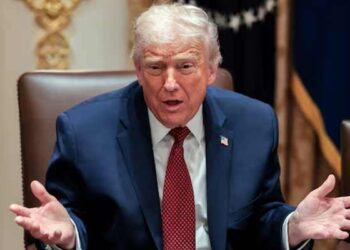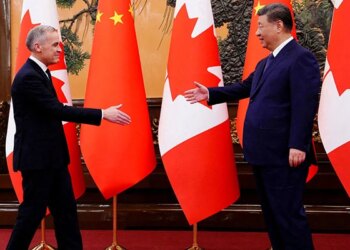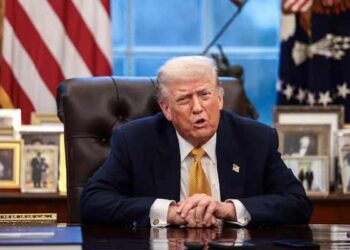Select Language:
The Biden administration has formally requested the U.S. Supreme Court to review a legal challenge to former President Trump’s use of tariffs under the 1977 International Emergency Economic Powers Act (IEEPA). This follows a lower court’s decision knocking down the core tariffs tied to Trump’s trade policies.
The Supreme Court is being asked to determine whether the president’s authority to impose tariffs stems from IEEPA, which traditionally addresses sanctions and asset freezes, or if invoking the law to impose tariffs oversteps constitutional boundaries, as the appeals court ruled.
While the case awaits a decision, the tariffs remain in effect because the court paused its ruling to allow the government to seek review. The Justice Department is pushing for a ruling by September 10, with oral arguments scheduled for early November, aiming to resolve the matter quickly at the start of the court’s upcoming term.
Small businesses and state governments, many of which oppose the tariffs, have not objected to the court hearing the case. In fact, some legal representatives express confidence that the tariffs will ultimately be upheld.
The tariffs initiated during Trump’s second term have ignited a trade war, leading to strained relationships with trading partners, increased market volatility, and global economic instability. Trump employed tariffs as tools for economic leverage, aiming to enforce trade policies and gain concessions from nations exporting goods to the U.S.
The legal challenge primarily revolves around Trump’s use of IEEPA to justify the tariffs—actions he labeled “reciprocal” in response to U.S. trade deficits and separately, measures aimed at China, Canada, and Mexico to combat drug trafficking.
Historically, IEEPA was used mainly for sanctions against foreign adversaries and freezing assets, not for tariffs. The Justice Department argues that the law permits tariffs under emergency powers to regulate or block imports.
The ruling by the federal appeals court, which involved challenges from small businesses and multiple states—including several led by Democrats—found that the president’s tariff powers under IEEPA are unconstitutional because they lack explicit Congressional authorization. The court pointed out that imposing tariffs is a significant economic and political action, requiring clear approval from Congress, which was absent in Trump’s case.
The case amplifies the ongoing legal debates over executive authority and constitutional limits, with other related lawsuits still pending. Concurrently, legal disputes concerning the independence of the Federal Reserve signal that significant economic policy issues are heading to the Supreme Court soon.







